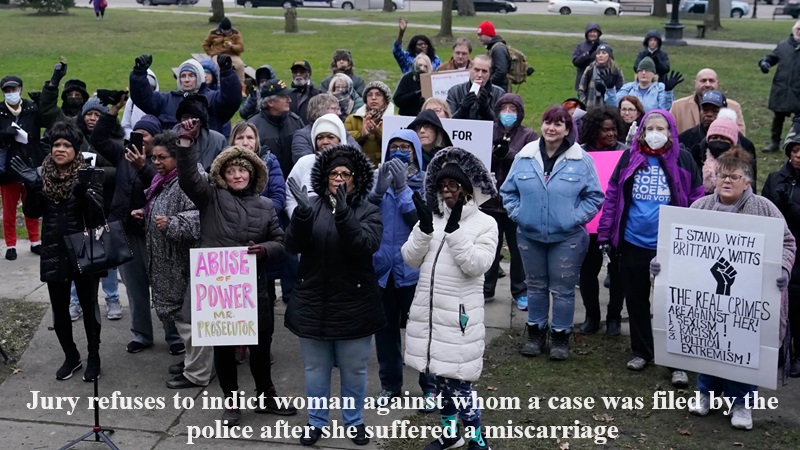
The grand jury in Trumbull County, Ohio, has decided not to pursue the case against Brittany Watts, a woman from Ohio who faced potential indictment for abuse of a corpse after suffering a miscarriage. The grand jury returned a “no-bill” in Watts’s case, effectively canceling the indictment.
Watts’s case had garnered nationwide attention and sparked outcry as it was seen as an example of how pregnant women could face criminal consequences following the overturning of Roe v. Wade. The case highlighted concerns about the treatment of women who experience pregnancy loss.
Reproductive justice advocacy group If/When/How’s senior litigation counsel, Yveka Pierra, stated, “This decision does not erase the harm that Brittany has experienced as the result of this case. Brittany should have been able to focus on taking care of herself after her pregnancy loss.”
Watts suffered a miscarriage in September when she was at 22 weeks of pregnancy. Following the miscarriage, she attempted to remove the mass that clogged the toilet and later sought medical attention. A nurse at the hospital reportedly called the police, leading to the legal proceedings.
The potential charge against Watts was based on Ohio’s “abuse of a corpse” law, which considers whether a corpse was treated in a way that would “outrage reasonable community sensibilities.” A conviction on the fifth-degree felony charge could have resulted in a one-year prison sentence.
Before the grand jury’s decision, Trumbull County prosecutor Dennis Watkins sent an open letter to Ohio Physicians for Reproductive Rights on Watts’s behalf, expressing concerns about the implications of seeking an indictment. The letter highlighted the potential chilling effect on women who might fear legal consequences for miscarriages and refuse to seek treatment.
The decision not to pursue charges in Watts’s case underscores the complexities and legal uncertainties surrounding reproductive rights and the treatment of pregnancy loss.

Post Your Comments